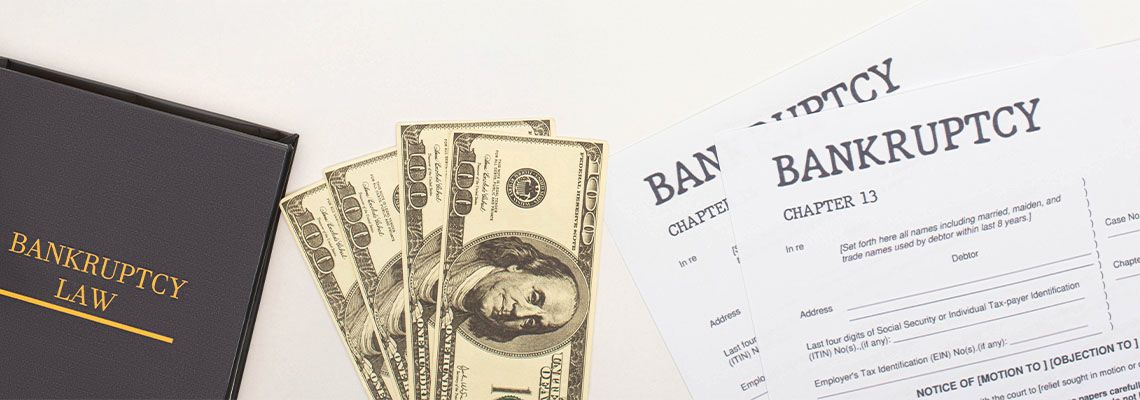
Dispelling Bankruptcy Myths
Bankruptcy is often referred to as the “B” word. It is a topic spoken about in hushed tones and dark corners, but it is not a sign of failure. For those who stand little chance of ever getting their financial life back in control, bankruptcy does exactly what it was created by law to do. It gives people a fresh financial start, and there is nothing to be ashamed about taking responsibility for your choices and working toward making wiser ones in the future.
At Cannon Law Offices, PLLC, we won’t just tell you what we think you want to hear. Instead, we give you the facts so when you make decisions about your financial future, you will have the information you need to make them.
If you live in Greenville or anywhere in eastern North Carolina, including the Outer Banks, Washington or Hyde counties, or Wilmington, get the facts about bankruptcy. Here are five myths we want to dispel.
Myth #1: Bankruptcy Will
Ruin My Credit Forever
Of course, filing for bankruptcy will impact your credit score negatively, but only for a certain period of time. A Chapter 13 bankruptcy will be part of your credit report for up to seven years or less if your repayment structure ends sooner. A Chapter 7 bankruptcy, in which all debts are discharged, will appear on your report for ten years. However, you should keep in mind that while bankruptcy is on your credit report, you can be rebuilding your credit and improve your score. You should also bear in mind that if you are pursuing bankruptcy, your credit score is probably already poor, and it will not get better without discharging or restructuring your debt.
Myth #2: Bankruptcy Eliminates All Debt
There are two ways to “eliminate” debt. You either have it discharged via a Chapter 7 bankruptcy or restructure debt and repay it over a period of years in a Chapter 13 bankruptcy. Chapter 7 does discharge most debt, although not all debt. Child support arrearages, student loans, judgments against you, and most tax arrearages are not dischargeable.
Myth #3: You Lose Everything
You Have in Bankruptcy
What you can keep and what you may have to forfeit in bankruptcy is always a concern. This is one of the best reasons why you should work with an experienced bankruptcy attorney from the very beginning. Because Chapter 7 bankruptcy discharges all debt and is designed for those with little or irregular income, you will forfeit items that secure the debt you owe. This would include your house or car, for example. If you want to discharge what you owe on a mortgage or auto loan, you will lose them in bankruptcy. If you own other valuable items outright, such as a piece of art, antiques, or a vacation home, the bankruptcy trustee may need to sell them to repay your creditors as much as possible before discharging all remaining debt.
If you make enough money to qualify for Chapter 13, you can retain your possessions by paying off the reduced and/or restructured debt that secures them. Chapter 13 is the best option if you want to keep your home or car.
Myth #4: Debt Consolidation
is a Better Option
Debt consolidation may or may not be a better option than bankruptcy. Firstly, you may not qualify for a high enough debt consolidation loan limit to pay off your debt. For example, if you need to pay off $100,000 in debt and your annual income is $60,000, a lender is likely to approve you for far less than the amount you need, such as $20,000 or $30,000.
Moreover, the interest rate on the consolidation loan may be higher than some of the rates you are already paying on the debt, so you end up paying more. You have to look at the interest rates of each debt you want to include, then decide if the rate offered by the consolidation lender makes it worth the effort. Finally, applying for a debt consolidation loan requires hard inquiries into your credit report which, in turn, can significantly lower your credit score.
Myth #5: Bankruptcy Won’t Stop
Creditor Harassment
On the contrary, filing for bankruptcy immediately brings a halt to harassment, foreclosure, and judgments by any creditor whose debt is included in the filing. The court issues a stay right away to all creditors involved. They are not allowed to pursue any further action against you, threaten you, call you, or in any other way pursue you for payment until your bankruptcy case is settled by the court. If any of them do, you and your attorney have recourse to warn them to stop, or you can inform the court, which can sanction the creditor for violating the stay order.
Get Help from an Experienced
Bankruptcy Attorney
The legal process allows you to file for bankruptcy without representation by a bankruptcy attorney. The benefits of working with an experienced and compassionate bankruptcy attorney who not only knows how the process works but wants nothing more than for you to get a fresh financial start, are tremendous.
Your attorney will know fact from fiction. Your attorney will make sure all debt that should be included is part of the filing and will represent you and your best interests in court. Your attorney will give you the information you need to make critical decisions about your financial future.
If you live in North Carolina, contact Cannon Law Offices, PLLC, now to schedule a consultation. We proudly serve clients in Greenville and throughout eastern North Carolina, including the Outer Banks, Wilmington, Hyde County, and Washington County.
